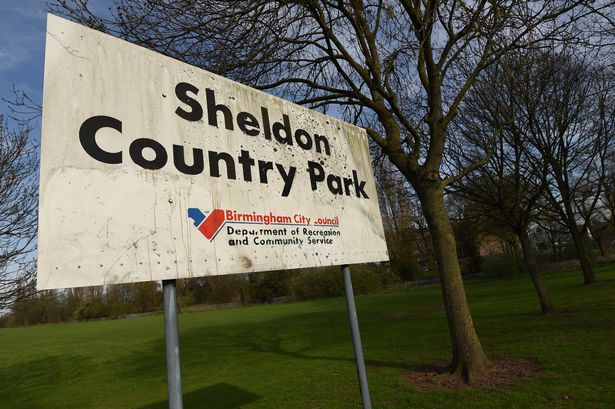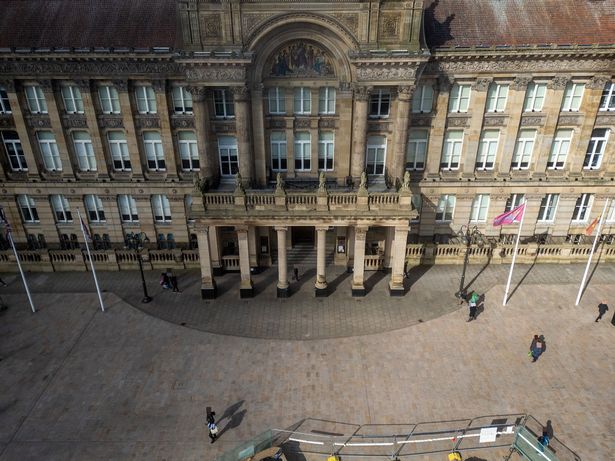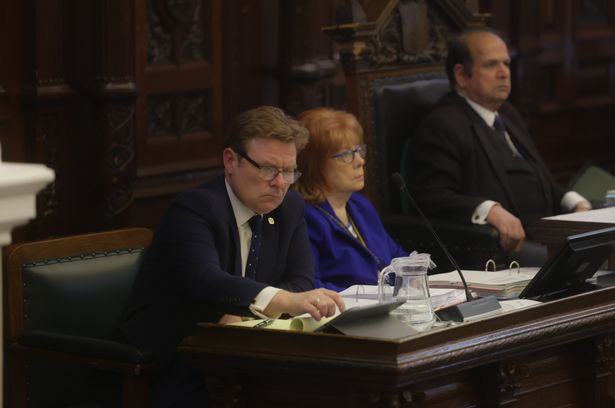Birmingham City Council has controversially proposed introducing parking charges at Sutton Park, Lickey Hills and Sheldon Country Park Autumn leaves at Lickey Hills Country Park, Birmingham.(Image: Jacob King/PA Wire)
Autumn leaves at Lickey Hills Country Park, Birmingham.(Image: Jacob King/PA Wire)
Birmingham City Council is planning to push ahead with controversial plans to introduce parking charges at three beauty spots despite backlash from residents.
The crisis-hit council passed through another painful budget earlier this year which included an enormous wave of ‘savings’ and cuts to services, as well as a council tax hike for a second successive year.
One particularly divisive proposal was to introduce parking charges at Sutton Park in Sutton Coldfield, Lickey Hills Country Park, on the Worcestershire border, and Sheldon Country Park, close to Birmingham Airport.
READ MORE: Birmingham residents make demand amid ‘outrageous’ update on council crisis inquiry
A consultation was held recently on the plans which showed a “significant proportion” were not in favour of the proposed parking charges, as a council report now reveals.
Despite this, the Labour-run council is planning to proceed with the proposals – albeit, with slightly revised charges.
The report states that for Lickey Hills Country Park, 919 respondents of the consultation (78.4 per cent) felt access to the park should remain free.
For Sheldon Country Park, that figure was 120 respondents (65.9 per cent) while for Sutton Park it was 2,741 respondents (68.2 per cent).
Acknowledging the opposition to the proposed charges, the council report continued: “The introduction of parking charges is often controversial and unpopular as users are asked to pay for something that has previously been free.
 Sheldon Country Park(Image: Birmingham Mail/Iain Findlay)
Sheldon Country Park(Image: Birmingham Mail/Iain Findlay)
“However, the projected income from parking charges still falls short of the cost of maintaining the three parks in question.
“Therefore it is deemed reasonable to ask park users to contribute financially to the upkeep and maintenance of these parks.
“Despite the introduction of parking charges, there will still be a requirement for financial support from the council’s general fund to maintain and manage these parks.”
It went on to say that charges across “destination sites” throughout the UK has become common practice.
The report said: “In the vast majority of cases, parking charges for these sites have been in place for several years.
READ MORE: Explained – Birmingham City Council’s plans to tackle unauthorised encampments
“Introducing charges on Birmingham’s sites will be in line with national best practice to offset the cost of maintaining these destination sites.”
It added that there was more support for revised parking charges which were lower than the consulted ones.
“This support for reduced parking charges was echoed by the feedback from park stakeholders who argued if the introduced parking charges are lower (than the consulted charges) it will minimise the negative impact on the trade of businesses within the parks,” it said.
“Reduced charges are more popular amongst consultees and whilst that would imply an income deficit, we expect the visitor numbers to increase (with less displacement parking) at such levels as to mitigate the impact.”
Both the original and revised proposed charges for each of the parks can be found below:
Sutton Park:
Original proposals:
- £2.20 for up to 2 hours, £3.30 for 2 to 4 hours, £5.00 all day
- Cost of annual parking permit price to be determined
- Chargeable hours of 9am to 6pm, 365 days a year
Revised proposals:
- £1 per hour up to 4 hours, £5.00 all day
- £52 per annum
- No change to chargeable hours (9am to 6pm, 365 days a year); a 30 minute ‘grace’ period is proposed in addition
Lickey Hills Country Park:
Original proposals:
- £2.20 for up to 2 hours, £3.30 for 2 to 4 hours, £5.00 all day
- Cost of annual parking permit price to be determined
- Chargeable hours of 9am to 6pm, 365 days a year
Revised proposals:
- £1 per hour up to 4 hours, £5.00 all day
- £52 per annum
- No change to chargeable hours (9am to 6pm, 365 days a year); a 30 minute ‘grace’ period is proposed in addition
Sheldon Country Park:
Original proposals:
- £2.20 for up to 2 hours, £3.30 for 2 to 4 hours, £5.00 all day
- Cost of annual parking permit price to be determined
- Chargeable hours of 9am to 6pm, 365 days a year
Revised proposals:
- £0.75 per hour up to 3 hours, £3.50 all day
- £52 per annum
- No change to chargeable hours (9am to 6pm, 365 days a year); a 30 minute ‘grace’ period is proposed in addition
 Birmingham City Council House in Victoria Square(Image: Christopher Furlong/Getty Images)
Birmingham City Council House in Victoria Square(Image: Christopher Furlong/Getty Images)
Ahead of a meeting on Tuesday, May 13, cabinet have been recommended to note the results of the consultation and approve the proposed changes.
It’s also been recommended to approve free parking permits for park volunteers and delegate to the relevant cabinet member the decision to proceed with the Sheldon Country Park and Sutton Park charging schemes.
This would be following the completion of the formal Traffic Regulation Order process.
Cabinet were also recommended to delegate to the cabinet member the decision to introduce a scheme for charging and enforcement at the Lickey Hills site utilising private parking arrangements.
‘These things can be unpopular’
Asked about the proposed parking charges earlier this year, council leader John Cotton told the Local Democracy Reporting Service: “It’s important we look at all options for raising income. I know sometimes these things can be unpopular and create challenges.
“But I think we’ve also got a responsibility to look at every opportunity we have to generate income to bring the budget back into balance.”
Coun Majid Mahmood, the cabinet member for environment and transport at the council, said last year that Birmingham had “fantastic” green spaces across the city, including major parks with “great facilities”.
“But we need to be able to maintain them for the benefit of everyone,” he said in a statement.
 Birmingham City Council leader John Cotton (left)(Image: Birmingham Live)
Birmingham City Council leader John Cotton (left)(Image: Birmingham Live)
Providing insight on the city council’s financial position, external auditors recently highlighted several issues including the equal pay debacle, inadequate budget setting, poor service management, demand led pressures and the disastrous implementation of a new IT system.
Labour politicians have also pointed to the impact of funding cuts over the past decade or so.
